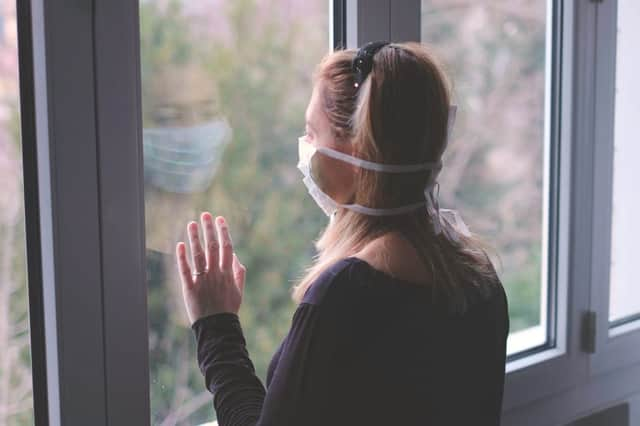Here’s how a local lockdown would work if coronavirus cases spike - and what’s happening in Leicester


While the number of coronavirus cases in the UK is gradually continuing to fall, there are still fears of a second spike.
Transmission rates are slowly decreasing, but the government is preparing for the event of localised outbreaks across the country, announcing plans to extend lockdown in regional areas should infections rise.
Advertisement
Hide AdAdvertisement
Hide AdPlans for local lockdowns come amid plans to imposed such a restriction in Leicester, after the city has recently seen a spike in coronavirus cases.
How would a local lockdown work?
Health Secretary Matt Hancock has explained how the UK government plans to handle local outbreaks in the event of a spike in regional areas.
Mr Hancock explained that where there are localised “flare-ups”, restrictions or lockdowns could be used in those specific areas in England to contain the virus spread.
He said that the Joint Biosecurity Centre, which advised the government on the Covid alert level, would work in partnership with local directors of public health and NHS teams to address the issue of a local outbreak, and ensure the right action was taken.
Advertisement
Hide AdAdvertisement
Hide AdHowever, it is still unclear whether a local lockdown would focus solely on the location where an outbreak has occurred, such as a care home, or workplace, or whether it would extend to a wider area.
If the latter is imposed, lockdown could extend to a postcode, town or a whole city, if it was considered necessary. However, local councils do not currently have the power to enforce a lockdown on a whole area, such as a town or city.
Mr Hancock has said that an example of a measure that might be taken could involve stopping any new admissions to a hospital A&E if there was an outbreak in that hospital.
Have any local lockdowns been imposed?
A local lockdown in Leicester is to be enforced on Tuesday (30 June) following a recent spike in cases, with more than 940 infections reported in the last fortnight.
Advertisement
Hide AdAdvertisement
Hide AdAll non-essential shops will have to close in the city from Tuesday (30 June) and schools will be closed to pupils from Thursday (2 July).
Home Secretary Priti Patel said that support will be going to the city, including help with testing and resources for the local authority.
There have also been several localised outbreaks of coronavirus in recent weeks at meat factories in Cleckheaton in West Yorkshire, and Anglesey in Wales.
The outbreaks were dealt with locally, with the factories forced to close, and all staff instructed to self-isolate and get tested for coronavirus.
Advertisement
Hide AdAdvertisement
Hide AdPeople who had been in contact with any staff members who tested positive were also asked to self-isolate for 14 days.
The factory in Cleckheaton later allowed staff who were healthy enough to return to work.
Local councils have said that the plan would be similar to this in the event of an outbreak in schools. Risk assessments would then be carried out afterwards to determine if the premises is safe to reopen.
It has also been suggested that people in the area of an outbreak may be contacted by the local council via leaflets, or by local health workers or politicians, who would help to raise awareness of the spike in cases.
More widespread testing could also form part of the plans to deal with a local outbreak.